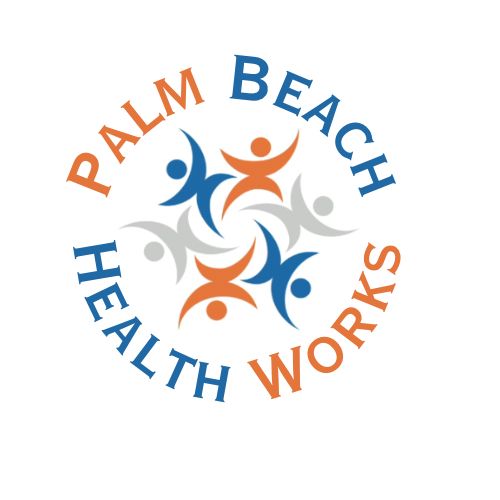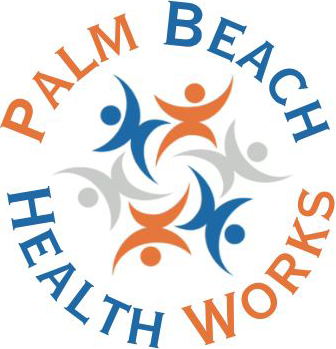In an era where 43% of US adults say they’re overweight, and 55% want to lose weight, healthy weight loss strategies have never been more relevant. While the latest weight loss medications can help, losing weight safely and efficiently requires additional planning, regular exercise, healthy eating habits, and more.
Our experts at Palm Beach HealthWorks have determined the best supplemental strategies for getting rid of excess weight and improving overall health. So, whether you’re taking a medical weight loss drug or not, you can start making meaningful progress.
What Is Medical Weight Loss?
Though some people want to lose weight for aesthetic reasons, many also need to do so for their health. In these cases, healthcare professionals often develop a structured approach to the process, including personalized weight loss programs. These weight management plans can include anything from surgery and medications to meal planning.
In recent years, medical weight loss medications like GLP-1 and GLP-1/GIP have revolutionized treatment plans. These drugs, more commonly known by brands like Ozempic and Mounjaro, mimic natural hormones that tell you when you’re full or hungry (GLP-1). This then helps patients regulate appetite, insulin levels, and digestion.
Some healthcare professionals may also suggest bariatric surgery, depending on your current health conditions and body mass index (BMI). However, this approach isn’t recommended for everyone.
Ultimately, medical weight loss is a personalized journey, wherein your doctor or dietitian helps you find the most effective ways to lose weight safely. If you want to experience a fulfilling weight loss journey, consider the tips below, all recommended by weight loss professionals.

1. Understand Your Body and Motivations
The first step toward successful weight loss is understanding your medical history and motivations; the “why” of your journey. For example, if you have a history of high blood pressure, digestive or kidney diseases, or other weight-related health conditions, you should talk to your doctor about creating a weight loss program that mitigates negative side effects.
Before you start medical weight loss, always discuss:
- Medical conditions: Explain your complete medical history, including any insulin resistance caused by metabolic diseases (diabetes), cardiovascular disease, mental health issues, family history, and anything else major you can think of.
- Allergies: Allergic reactions to weight loss medications and surgeries are rare, but reporting your allergies helps prevent the chance of complications. This is also important for meal planning.
- Medications: Don’t forget to talk about any current prescriptions, over-the-counter remedies, or supplements you’re taking, as these medications could impact medical weight loss efforts.
Beyond the medical details, your internal motivation is also a key aspect of getting started. Before you connect with a professional program, determine why you want to lose weight. Is it for improving your overall health, boosting energy, enhancing mobility, or reducing the risk of chronic diseases? A clear “why” will help you stay committed to new and challenging lifestyle changes.
2. Always Choose A Professional Weight Loss Program
Once you know your health history and are committed to losing weight, the next step is researching professional weight loss programs. The providers who lead these programs have the expertise needed not only to prescribe medications, but also monitor health conditions and regular calorie intake. When you work with professionals like Palm Beach HealthWorks, you get:
- Thorough initial assessment: For the best personalized plan, you receive a detailed evaluation of your body composition, including muscle mass, fat distribution, and metabolic rate. Your provider will also review your medical history, food intake, and level of physical activity.
- Personalized nutrition plans: After the initial assessment, your provider will develop tailored medical, physical, and dietary approaches—backed by experts.
- Customized fitness solutions: Benefit from personalized exercise routines designed to match your fitness level and limitations. Plans focus on improving cardiovascular health, building strength, and enhancing overall wellness.
- Ongoing support and monitoring: With regular check-in appointments, your plan is adaptive and ongoing. You’ll be able to adjust strategies and address concerns on the regular with licensed nutritionists, fitness trainers, and other specialists.
Our expert team at Palm Beach HealthWorks will conduct a thorough evaluation to assess your eligibility and determine whether TRT is the best option for you.

3. Start Building a Healthy Diet
Any weight loss professional knows that nutrition is one of the key foundations for success. However, it’s not just about eating fewer calories. Unlike fad diets, a truly beneficial and balanced diet accounts for your current health conditions, medications, and helps you preserve muscle mass as you lose weight. Here’s how you can start prioritizing healthy foods:
- Understand healthy meals: Whether you need to lower blood pressure or manage heart disease, start by talking to a licensed dietitian about what foods will benefit your body. Whole grains, healthy fats (like olive oil), lean proteins, and fruits and veggies are all staples of a good meal, but knowing exactly how to balance them requires expertise.
- Avoid processed foods: Knowing what not to eat is just as important as knowing what to prioritize. Avoid saturated fats, added sugars, and artificial ingredients that are known to cause weight gain and the negative health effects associated.
- Portion control: When it comes to reducing your body weight, calories still matter. Balance is still essential, and a professional can help you adjust calorie intake to promote modest weight loss while ensuring you get the nutrients you need.
- Meal planning: Utilize a meal plan that outlines one or more healthy options per day. Consider systems for managing your groceries, potential meal replacements for dietary restrictions and lazy days, and other strategies for staying on track.
Examples of Healthy Diets You Can Try Today
While the most effective healthy eating plan is personalized to you, there are existing diets you can pull inspiration from. Some popular options in 2025 include:
- Mediterranean diet: Noted as the “healthiest way to eat” for the 8th year in a row, this diet focuses on whole grains, legumes, leafy greens, healthy fats, and minimal processed foods and refined sugars.
- Nordic diet: If you struggle with blood pressure, this heart-healthy diet emphasizes root vegetables, whole grains like rye and oats, fish, berries, and rapeseed oil.
- Plant-based foods diet: While plant-based diets need to integrate healthy proteins, a growing body of research shows that vegetarians have a 12% lower overall cancer risk, while vegans enjoy a 24% lower risk.
And many more! We always recommend working with a professional dietitian to determine the best diet for your current weight and health conditions.

4. Commit to Enjoyable Physical Activity
Exercise is a powerful tool for helping you lose weight—but only as useful and effective as it is sustainable and enjoyable. Appropriate physical activity can help you preserve muscle mass while burning calories, boost cardiovascular health, and even regulate blood pressure and insulin resistance. This is especially true when combined with a healthy eating plan.
Here are our top tips for exercising as you lose weight:
- Start slow: Many overweight individuals may be new to exercise or have conditions—like joint pain or heart disease—that limit mobility. Always start slow and work with a professional who can guide you toward safe movements and gradually increase intensity as your body weight decreases.
- Consistency over intensity: It’s not about exercising hard, it’s about showing up. Try to find ways to stay physically active day-to-day, so you can consistently work toward your weight loss goals.
- Combine cardio and strength training: Don’t be afraid to combine different types of training. Cardio is known to support calorie burning and heart health, while strength training can help you maintain muscle mass as you lose weight.
- Make movement a lifestyle: The best workouts are fun, non-intrusive habits you can add to your daily life. From walking the dog to dancing and gardening, find movement that you can enjoy day-to-day.
Examples of Exercise You Can Try Today
The most effective workout routine is tailored to your current lifestyle and health needs, which is why we’ve gathered examples of fun, evidence-backed options:
- Walking or hiking: Take in the city or natural scenic views with regular walking and hiking. This form of exercise is low-impact, highly accessible, and will help improve your heart health while burning calories.
- Swimming or water aerobics: For those struggling with obesity, water-related exercises are gentle on joints while helping to condition your body and burn calories.
- Cycling: Riding on a bike is a simple and fun way to build lower body strength and improve endurance. Plus, if you live in the city you can choose to bike to some destinations, rather than drive.
- Strength training: This type of exercise, including squats, push-ups, deadlifts, can be personalized to your unique goals and limits while burning calories and building muscle mass.
- Yoga or Pilates: Either at-home or in a dedicated class, these exercises improve flexibility, balance, and core strength while supporting stress management—a key factor in weight control.
- Dance-based workouts: Whether you’re clubbing or heading to Zumba class, regular dancing is a fun way to burn a heap of calories while improving muscle mass and coordination.
5. Work On Your Sleep and Mental Health
While we touched on motivation previously, it’s vital not to understate the importance of your mental state while losing weight. Both mental health and sleep quality play a role in preventing weight gain and promoting healthy weight loss.
Depression and binge-eating disorders can cause unhealthy eating habits, while sleep deprivation has been directly linked to impaired GLP-1 responses—the hormone that helps regulate appetite and blood sugar. As your brain craves more and more food and finds difficulty digesting, your weight can quickly get out of control. How can you combat this?
- Better eating patterns: On top of choosing the right foods to eat, knowing when to eat is also crucial. Avoid eating right before bed or unmonitored fasting. Instead, try to incorporate 2-3 balanced meals per day at scheduled times.
- Work on your sleep schedule: Too much or too little sleep can have a major impact on your well-being, disrupting the hormones that control mood and digestion. Keep a regular bedtime, and try getting at least 7–9 hours of quality sleep per night for hormonal balance.
- Manage stress proactively: Try stress-reducing practices like meditation, yoga, or deep breathing to lower cortisol levels—a hormone that can promote fat storage.
- Seek professional help: If you have significant mental health concerns, you should reach out to a mental health specialist for help with depression, anxiety, or disordered eating.
- Limit stimulants and alcohol: Reduce caffeine intake in the afternoon and avoid alcohol before bedtime, as both can disrupt deep sleep cycles or exacerbate mental health issues.

6. Boost Your Weight Loss Efforts With Natural Supplements
If you’re pursuing medical weight loss, there are some no-nonsense supplements you can take advantage of. These additions to your weight loss journey have been proven to work well on their own, and when combined with weight loss medication:
- Apple Cider Vinegar (ACV): A well-known and easy-to-access weight loss supplement, ACV helps your digestive system process food, reduces blood sugar spikes, and curbs appetite.
- Yerba Mate Tea: This innovative weight loss supplement is capable of boosting your GLP-1 levels by 40–50%. Just one cup per day (3g of tea leaves) can reduce inflammation and weight gain.
- Allulose Sweetener: Now readily available in stores, this sweetener is tasty like natural sugar without spiking blood glucose or insulin levels.
Achieve a Healthy Weight With The Latest Weight Loss Strategies
If you’re ready to take the plunge and start losing weight, Palm Beach HealthWorks is your expert guide. Our dedicated team of licensed and Florida-based medical professionals are eager to provide the prescription medication, check labs, and guidance you need. When you choose us for medical weight loss, we carefully consider your unique medical history, concerns, and goals.
Contact us today to schedule your consultation and discover how a tailored approach can help you feel your best, inside and out.


